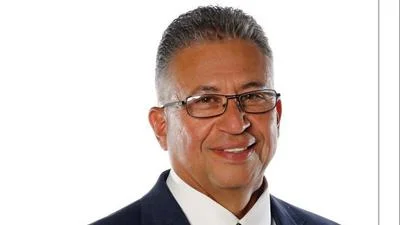New Mexico Gov. Michelle Lujan Grisham recently vetoed large portions of the state legislature's bipartisan omnibus tax reform bill, saying that the "tax reform" and relief offered would "jeopardize the state’s future."
As passed by the New Mexico House and Senate, omnibus tax bill HB 547 presented a mix of pro-growth tax reforms, such as reducing the gross receipts tax (GRT) rate and corporate income tax (CIT), but failed to address concerns like tax pyramiding and capital gains deductions, according to an analysis by the Tax Foundation.
Los Alamos Daily Post reported that when the bill originally passed out of committee, Rep. Derrick Lente (D-Sandia Pueblo), chair of the House Taxation and Revenue Committee and lead sponsor of the bill, stated, "This tax package represents a responsible approach to leveraging our current capacity for creating lasting change." He emphasized that HB 547 aligns with New Mexican values by benefiting working parents, retirees, veterans and small businesses, while also supporting climate goals.
In reviewing the final version of the bill, the New Mexico Business Coalition (NMBC) was “relieved” that the bill did not include increased Personal Income Taxes (PIT), but criticized other tax increases and money giveaways, arguing that tax increases were unnecessary given the state's $3.6 billion surplus. According to NMBC, HB 547 significantly impacted capital gains taxes, which they said would discourage savings, investment, job creation and state revenue. The bill does have some bright spots, such as the extension of the sunset on the military retirement pay tax exemption and the reduction of the state GRT rate by half a percent over four years. However, NMBC says these positives were intentionally included to distract from “tax increases and to gain votes from certain legislators.”
Ultimately, Lujan Grisham used her veto power on April 7 to remove substantial parts of the tax package, the Albuquerque Journal reported. She eliminated a phased-in reduction of consumer taxes, a 20% alcohol tax increase, an electric vehicle tax credit and changes to the state's income tax system aimed at benefiting low-income residents. However, she preserved a $500 tax rebate, an expanded child tax credit of up to $600 per child and an expansion of the film incentive program.
“We can and should consider permanent and meaningful tax reform, but it must be accomplished in a fiscally responsible manner that will not jeopardize the state’s future,” Lujan Grisham said, according to a press release.
Following the governor’s line-item veto, the NMBC said that while the governor did eliminate some tax increases in HB 547, she also signed a massive budget spending increase, expanding the state government for the third consecutive year, and eliminated a gross receipts tax reduction for New Mexicans. NMBC pointed out that while the governor expressed concerns about having enough money for increased spending, she did however approve millions of dollars in increased tax credits for the film industry and allocated $15 million for non-citizens in New Mexico who don't qualify for a $500 per person tax rebate.
Carla Sonntag with the New Mexico Business Coalition told KOB 4 News that they were disappointed the governor vetoed key sections of the state’s 2023 tax reform package saying the proposed reduction in gross receipts tax was "a step in the right direction" and that "we truly need a rewrite of the system." Lawmakers plan to rework the proposals during the interim, aiming to have a new package ready for the 2024 session.









